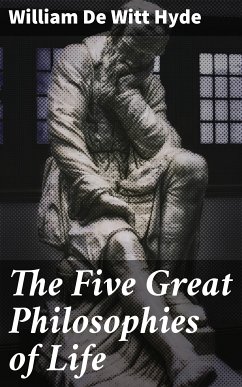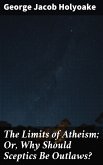In "The Five Great Philosophies of Life," William De Witt Hyde explores the profound and enduring frameworks that have shaped human thought and existence. This incisive work dissects five pivotal philosophies'ÄîHinduism, Buddhism, Confucianism, Christianity, and Materialism'Äîillustrating their unique contributions to the moral and intellectual fabric of society. Hyde's literary style is characterized by clarity and depth, allowing readers to navigate complex ideas with ease, while thoughtfully situating these philosophies within their historical context, highlighting how they have influenced contemporary issues and personal belief systems. William De Witt Hyde, a distinguished American clergyman and scholar, brought to this work a wealth of experience and insight into spiritual and philosophical discourse. His academic pursuits in theology and philosophy, combined with his deep commitment to elucidating the truths of human experience, inspired him to examine these foundational ideologies. Hyde's background in education and his role as a prominent figure in the Unitarian Universalist movement contributed to his ability to synthesize complex ideas into accessible narratives that resonate with readers. This book is highly recommended for anyone seeking a deeper understanding of the philosophical underpinnings of life'Äôs great questions. Hyde'Äôs exploration invites readers to reflect on their own beliefs and the ideas that have shaped humanity, making it an essential read for both students of philosophy and curious thinkers alike.
Dieser Download kann aus rechtlichen Gründen nur mit Rechnungsadresse in A, B, BG, CY, CZ, D, DK, EW, E, FIN, F, GR, H, IRL, I, LT, L, LR, M, NL, PL, P, R, S, SLO, SK ausgeliefert werden.









